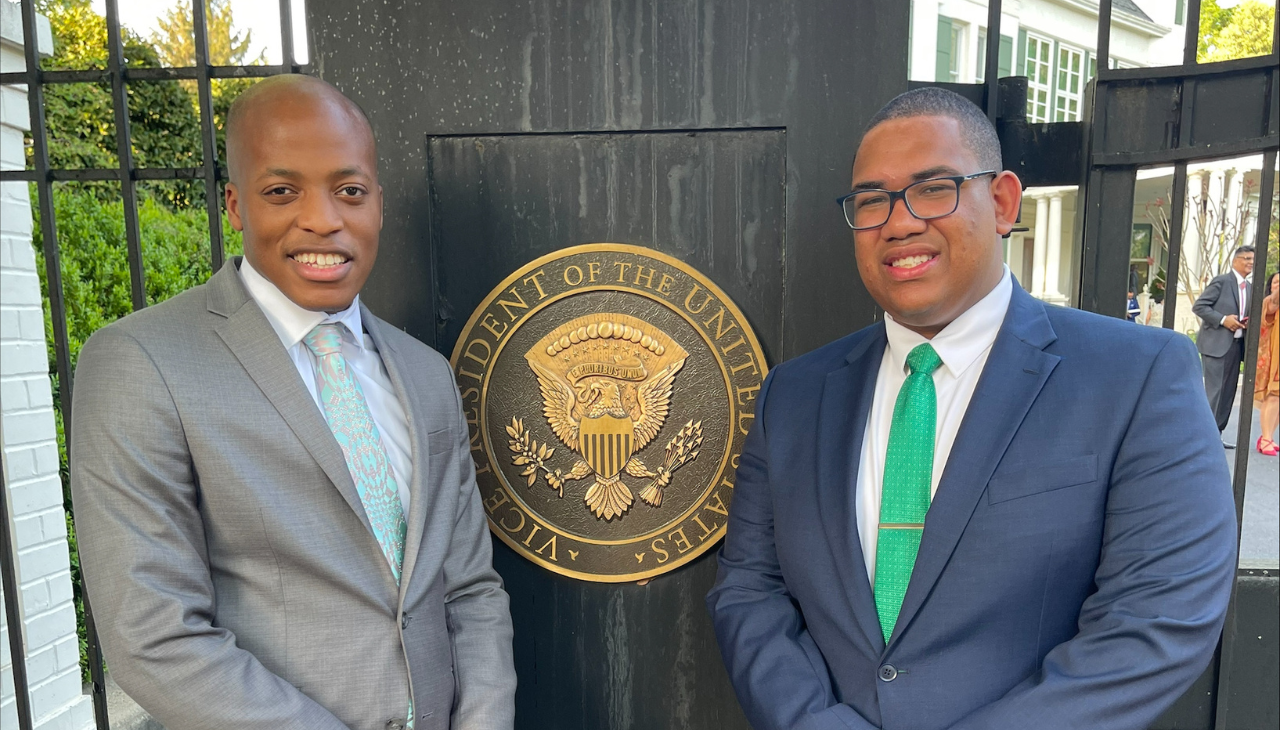
AT&T opens a learning center in a Hispanic community in Detroit
The 2022 National Report Card confirmed what everybody was noticing: school-aged children are falling behind at a record pace. Intensified by the pandemic, students who come from families with insufficient internet access face even bigger challenges as education becomes increasingly reliant on technology.
Especially for the Hispanic community, language and trust are added to the list of factors that leave students behind. Because of the lack of resources and guidance in Spanish, it becomes a major barrier to learning for non-English speakers.
Noticing the growing problem since 2020, AT&T — the world's largest telecommunications company by revenue and the third largest provider of mobile telephone services in the United States — made a commitment to address the digital divide that’s impacting millions without connection. Throughout connected learning centers, the company wants to improve internet access and build education success.
As part of a $2 billion initiative, today AT&T has 20 centers in the country — with three located in Hispanic neighborhoods.
The most recent center was inaugurated last week in Detroit. It is the second one in the city, and is in partnership with SER METRO — a workforce development organization. As the space is located in southwest Detroit, the highest concentration of Latinos in the state of Michigan, it is dedicated to the community and counts with the support of bilingual staff as families access the center’s educational resources.
“The center is going to be extensively available to our community who generally don’t have internet access at home or computers,” said Eva Garza Dewaelsche, President and CEO of SER Metro Detroit, Jobs for Progress, Inc.
Primarily funded through funds from the Department of Labor and the Department of Education, SER METRO provides job training, employment services and resources for people to do job search activities. The populations they serve are those who are often underserved or underrepresented, such as low-income, unemployed, at-risk youth, returning citizens, seniors and veterans.
With more than 20 computers donated by DELL, the lab will have high speed internet and three years of maintenance provided from AT&T. Garza Dewaelsche said SER METRO estimates that about 5,000 people come annually to use their resources at the lab to file for unemployment, seek counselors from their career specialists or to enroll in educational programs (high school completion and GED programs).
“People who walk in and just need a computer will have access to it [the lab],” she added. “It is open to the general community and more specific to our educational programs.”
CONTENIDO RELACIONADO
Among the services provided by the connected learning centers initiative, there are education support materials provided via a digital literacy (also in Spanish) platform to all K-12 years. Audiovisual content also helps students learn and educators teach.
Sandro Mesquita, AVP Corporate Social Responsibility at AT&T, explained the process of choosing the place where a new center will be installed. The initiative looks at cities that will benefit from the installation of a connected learning center — then, it partners with committed local community NGOs located in neighborhoods where the residents face connectivity barriers.
Right on cue with the initiative’s mission, which is to address the most needed and underserved communities, Mesquita said it was the most logical to open a center in that community in Detroit — as it is one of the highest growing demographics in the United States.
Garza Dewaelsche highlighted the importance of having bilingual services and staff in such a location in Detroit — the heart of the Hispanic community. In a city where the poverty level is 33%, many people have trouble with internet access, especially at the high speed level. Detroit is ranked among the five least-connected cities in the country, with more than a quarter of the city’s households and 70% of school-age children lacking access to broadband at home.
“We need to bring those graduating reading and math levels up,” said Garza Dewaelsche. “We are getting there, and a lab like this is going to help us get there faster.”
Although there are no centers in Philadelphia, AT&T is planning to reach 50 centers in the upcoming future, with more locations in the East Coast. Mesquita said the initiative always looks forward to working with great and active local partners, as those organizations know how to make a difference in the communities they serve.










DEJE UN COMENTARIO:
¡Únete a la discusión! Deja un comentario.